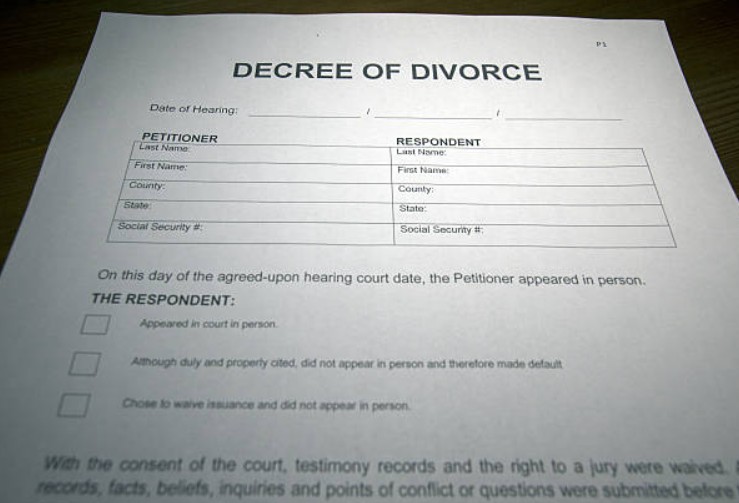Divorce can be one of the most challenging transitions in life, both emotionally and financially. For many, the burning question remains: “What is a Wife Entitled to in a Divorce Settlement UK?” This guide offers an in-depth look at the legal entitlements, procedures, and critical factors that affect divorce settlements in the UK. Whether you’re in the midst of proceedings or planning for the future, this comprehensive resource is designed to keep you informed and empowered.
What Is a Wife Entitled to in a Divorce Settlement UK?
This central query addresses the core of many divorce proceedings. In the UK, divorce settlements are crafted to ensure fairness by balancing both financial and non-financial contributions made during the marriage. For wives, the entitlements may include:
- Spousal Maintenance: Financial support to help maintain a similar standard of living post-divorce.
- Property Division: A fair share of the assets accumulated during the marriage.
- Pension Sharing: Redistribution of pension benefits to safeguard long-term financial security.
- Child Arrangements: Provisions for the care, support, and well-being of any children.
- Legal Costs: Consideration of the allocation of legal fees, sometimes influenced by financial disparities.
These entitlements are determined by considering factors like the duration of the marriage, each party’s contributions (both monetary and non-monetary), future earning capacities, and the welfare of any children involved.
How Do UK Divorce Courts Decide on Settlements?

UK divorce courts use a systematic approach that combines statutory guidelines with established case precedents. They focus on ensuring that both parties receive a fair outcome. Here’s what the courts typically evaluate:
- Duration of Marriage:
Longer marriages often result in a more equal split of assets and greater spousal maintenance. - Financial Contributions:
Both direct earnings and indirect contributions, such as homemaking and childcare, are carefully evaluated. - Future Needs:
Considerations include age, health, and future earning potential. - Child Welfare:
If children are involved, their best interests are paramount, often affecting the overall settlement. - Standard of Living:
Courts strive to preserve a lifestyle as close as possible to what was enjoyed during the marriage.
Below is an extended table summarising these key considerations:
| Factor | Description | Impact on Settlement |
| Length of Marriage | The duration over which the relationship has developed | Longer relationships generally yield more balanced settlements |
| Financial Contribution | Earnings, investments, and non-monetary efforts such as homemaking | Acknowledges both financial input and sacrifices made |
| Future Needs | Assessment of ongoing and future financial security | Influences spousal maintenance and pension sharing decisions |
| Child Welfare | Focus on the best interests of children | Affects living arrangements and may modify financial distributions |
| Standard of Living | Maintaining a similar lifestyle post-divorce | Guides the court in determining necessary support and compensation |
How Can a Wife Ensure a Fair Settlement?
What Actions Ensure the Best Protection for Your Interests?
A proactive approach is essential for securing your entitlements. Here are critical steps and tips:
- Obtain Specialist Legal Advice:
- Consult a divorce solicitor who specialises in UK family law.
- Ensure that all financial and non-financial contributions are adequately recognised.
- Document Everything:
- Keep meticulous records of income, expenditures, assets, and any non-monetary contributions such as childcare or homemaking.
- Detailed documentation can be invaluable in negotiations or court proceedings.
- Explore Negotiation and Mediation:
- Consider mediation as an alternative to prolonged litigation.
- Negotiated settlements can often be more flexible and tailored to individual circumstances.
- Understand Financial Disclosure Requirements:
- Full transparency about assets and liabilities is critical.
- Both parties must present a complete picture to facilitate fair distribution.
- Plan for the Future:
- Assess long-term financial needs, including pension sharing and potential spousal maintenance.
- Consider consulting financial advisors to help plan your post-divorce future.
Why Is Comprehensive Financial Disclosure Crucial?
How Does Transparency Influence the Outcome?
Financial disclosure is the backbone of a fair divorce settlement. Here’s why it matters:
- Accurate Asset Valuation:
Both parties must provide a full account of all assets, liabilities, income, and expenditures to ensure nothing is overlooked. - Support for Claims:
Detailed records help substantiate claims regarding non-financial contributions and future financial needs. - Facilitating a Fair Agreement:
Transparency reduces the scope for disputes and can help both parties reach a mutually agreeable settlement more quickly.
What Are the Critical Stages of the Divorce Settlement Process?
How Does the Process Unfold from Consultation to Finalisation?

Understanding each stage of the process can demystify divorce proceedings and help you prepare for what lies ahead:
- Initial Consultation:
- Meet with a divorce solicitor to assess your case and discuss potential entitlements.
- Set realistic expectations and prepare a list of questions regarding your rights.
- Financial Disclosure:
- Both parties compile and present detailed accounts of their financial situations.
- This stage is pivotal for ensuring that all assets and liabilities are taken into account.
- Negotiation and Mediation:
- With full financial disclosure, both parties engage in negotiations, often with the help of mediators.
- This stage aims to reach an amicable agreement without resorting to court intervention.
- Court Intervention (if necessary):
- If negotiations break down, the case moves to court.
- A judge reviews all documentation and evidence to make a final, binding decision.
- Finalising the Settlement:
- Once agreed upon or decreed by the court, the settlement is formalised in a legally binding document.
- Both parties are then expected to adhere to the terms, with recourse available in case of non-compliance.
How Does Divorce Impact Future Financial Stability?
What Are the Long-Term Financial Considerations?
Divorce settlements have lasting implications, particularly concerning financial security and independence:
Pension Sharing:
-
- Ensuring a fair split of pension funds is essential for long-term retirement planning.
Spousal Maintenance:
-
- Ongoing financial support can help maintain a similar standard of living post-divorce.
Asset Redistribution:
-
- A fair division of property and assets can mitigate the financial impact of divorce.
Child Support and Welfare:
-
- Arrangements for child support are integral, particularly where children’s education and well-being are concerned.
Additional considerations include reassessing budgeting, investment strategies, and exploring opportunities for career development to regain financial independence.
What Are the Societal and Economic Implications of Divorce Settlements in the UK?
How Do Divorce Laws Reflect and Influence Society?

Divorce settlements not only affect the individuals involved but also have broader societal and economic impacts:
Economic Redistribution:
-
- Equitable asset division can influence local property markets and pension schemes.
Changing Gender Roles:
-
- Modern divorce laws recognise diverse contributions, reflecting evolving societal norms and gender roles.
Empowering Individuals:
-
- Fair settlements support long-term financial independence, particularly for spouses who may have sacrificed career advancement.
Impact on Children:
-
- The welfare of children is a primary concern, with provisions in place to secure their future well-being and educational needs.
Recent legal reforms aim to increase transparency, streamline processes, and better recognise both financial and non-financial contributions, ensuring that divorce settlements are fair and supportive of post-divorce recovery.
Conclusion
Navigating the complexities of divorce is no small feat, and understanding “What Is a Wife Entitled to in a Divorce Settlement UK?” is a critical first step. This comprehensive guide has outlined the key elements—from legal entitlements and court procedures to long-term financial planning and societal implications. By asking the right questions and taking proactive steps, you can safeguard your rights and work towards a fair, informed settlement.
Whether you are currently facing divorce proceedings or simply planning for the future, remember that expert legal advice, thorough financial disclosure, and an understanding of your contributions are the cornerstones of achieving a balanced outcome. Stay informed and proactive, and know that with the right guidance, you can navigate this challenging process toward a secure and equitable future.
Frequently Asked Questions
Does the length of the marriage affect the settlement outcome?
Yes, the duration of the marriage is a crucial factor. Longer marriages generally result in a more balanced division of assets and often lead to higher spousal maintenance awards.
What role does comprehensive financial disclosure play in the divorce settlement process?
It is essential for transparency. Complete financial disclosure helps establish a clear picture of both parties’ assets and liabilities, facilitating a fair and equitable settlement.
Can legal costs be shared between the parties?
Typically, each party is responsible for its legal fees. However, in cases of significant financial disparity, there may be provisions for sharing costs.






